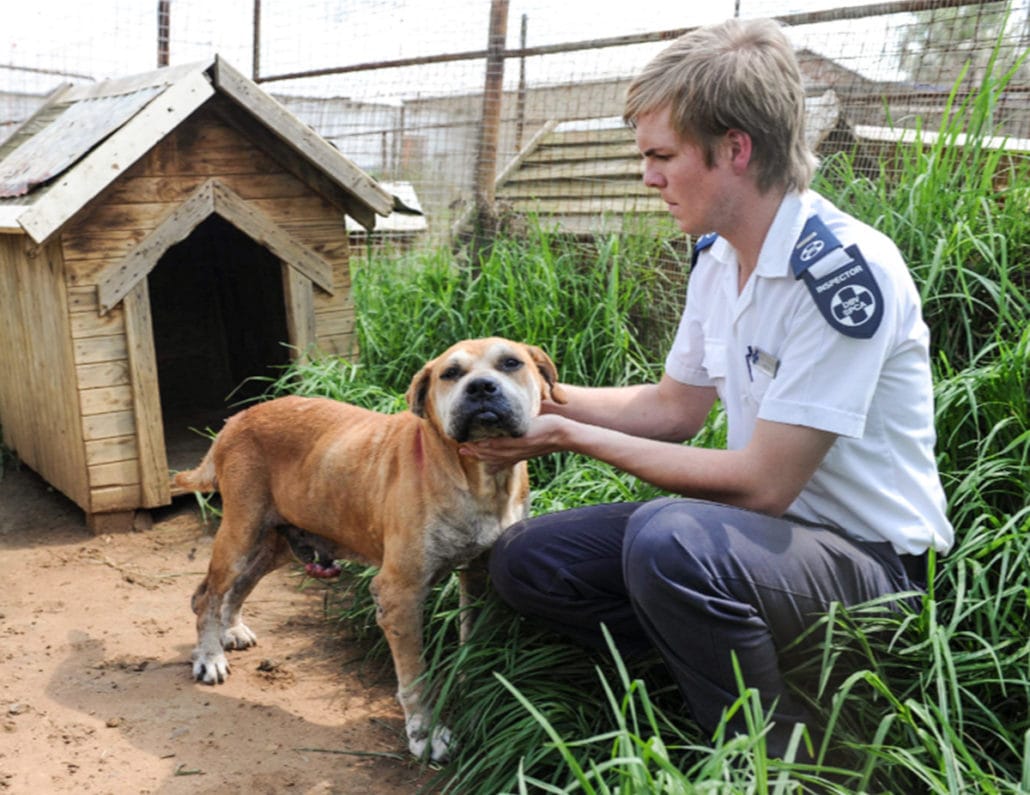When a mobile billboard went up recently in Bryanston, Johannesburg advertising a dog fighting event between two Pit Bulls, Nitro and Thor, South Africans were understandably up in arms and took to social media in their thousands to voice their horror. It turned out to be part of a powerful campaign by the National Council of SPCAs (NSPCA) to help raise awareness of dog fighting in the country, which it claims has seen an astounding 500% increase in just the last four years.
Dog fighting has been illegal in South Africa since 1945 and is considered a form of organised crime. Reports point to it being a multi-million rand industry with an underground web that stretches from back-alley fights with stolen dogs to more formal, organised events in settings specifically designed for this purpose.
This exponential rise in popularity not only speaks to the massive fight we all have ahead to bring an end to this practice, but also shows that man sometimes might not have his best friend’s best interests at heart.
What is dog fighting?
This barbaric competition sees two dogs placed in a small arena and forced to fight for the entertainment of spectators. There is often a gambling element involved, which sees a lot of illegal money being generated. The NSPCA has reported that in the case of professional tournaments, large sums of money or even double-cab bakkies are put up as grand prizes.
In South Africa, the American Pit Bull is the breed most commonly used in these fights. Some are stolen from their families, while most are purposefully bred and trained in the most horrific ways to increase aggression. Common methods include starving the dog, beating it and even injecting it with steroids.
Dogs that are deemed unfit to fight or that have been defeated, are often left to die of their injuries, or are put down in the most brutal ways.
Who is involved?
The reality is that those who take part in dog fighting come from all walks of life and can be highly respected members of society. Much like other organised crime, these individuals create a sort of community ruled by secrecy and fear to deter members from coming forward. In fact, some of the participants are often involved with legal dog sporting activities and use this as a cover or means to engage in dog fighting.
The NSPCA hits back
In 2014 the NSPCA launched its Special Investigations Unit, which is primarily dedicated to combating dog fighting. Since its inception, the unit has undertaken a number of successful raids on dog fighting rings and conducted the largest successful raid in the country, which resulted in 18 arrests and 14 Pit Bulls being rescued.
But this is not where their job ends. The NSPCA has enforcement powers, like the police, and does not only lay charges, but also completes a docket with evidence, including statements/affidavits, photographs, veterinary and, if applicable, post-mortem reports. They also liaise with prosecutors, give evidence in court and can also assist with sentencing.
Inspectors often have to use undercover techniques and skills to investigate crimes and will join forces with other law enforcement agencies to execute raids. For these occasions the NSPCA has developed a set of guidelines on how crime scenes should be processed and a raid should be conducted.
This is extremely dangerous work that demands inspectors to have the highest level of training. In addition to qualifying as an inspector, trainees will also need to be qualified as an Animal Welfare Assistant. Inspectors are also required to attend refresher courses regularly to ensure that they are always up to speed with the latest techniques and developments.
Lend a helping hand
The costs involved in conducting these investigations and bringing an end to dog fighting is substantial. And with South Africa increasingly being marketed in other countries as a dog fighting destination due to our lax laws and slow legal processes, the NSPCA – as a non-profit organisation – needs all the help it can get to combat dog fighting.
Should you have any information regarding dog fighting in your area, you can help by contacting inspectors at your nearest SPCA to investigate. You can also help the NSPCA continue their fight by making donations. For these details and more, please contact your local SPCA branch.
You can also follow the NSPCA on Facebook , or visit their website for more.
Images sourced from:
NSPCA
ENCA
Noordepoort North Sider
Times Live


